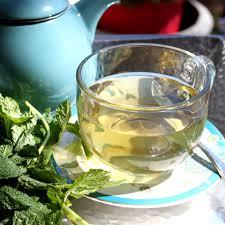Morning vs. Night: When Should You Drink Digestive Tea?

Digestive health plays a vital role in how we feel and function each day. From bloating and gas to sluggish digestion and discomfort, digestive issues can disrupt our routines and energy levels. Thankfully, natural remedies like digestive tea offer a gentle and effective way to support gut health. Packed with herbs known to soothe the stomach and stimulate digestion, digestive teas are a popular choice for those seeking a natural solution to common digestive complaints. But one question frequently arises: Is it better to drink digestive tea in the morning or at night?
Let’s explore the benefits of drinking digestive tea at different times of day, compare the effects of morning vs. night use, and help you decide the best routine based on your unique digestive needs. Whether you're using it for general gut support or specifically as a gas relief tea, timing can make a big difference.
What Is Digestive Tea?
Digestive tea is a herbal infusion made from ingredients that support and enhance the digestive process. Common ingredients include:
-
Ginger – Stimulates digestion and reduces nausea
-
Peppermint – Relaxes digestive muscles and soothes gas pains
-
Fennel – Acts as a natural carminative, reducing gas and bloating
-
Chamomile – Calms the stomach and nervous system
-
Licorice root – Protects the stomach lining
-
Dandelion root – Stimulates bile flow for better fat digestion
-
Slippery elm – Coats and soothes the digestive tract
These herbs work synergistically to promote smoother digestion, relieve discomfort, and reduce gas, making digestive tea an excellent natural gas relief tea as well.
Benefits of Drinking Digestive Tea in the Morning
Starting your day with a warm cup of digestive tea can set a positive tone for your digestive system. Here’s how drinking it in the morning helps:
1. Stimulates the Digestive System
After a night of fasting, your digestive system needs a gentle nudge to wake up and get going. Digestive teas with ingredients like ginger and dandelion root help activate stomach acids and enzymes, preparing your gut to digest breakfast effectively.
2. Supports Regular Bowel Movements
Many people struggle with sluggish digestion in the morning. Digestive tea, particularly blends with slippery elm or dandelion, can encourage regularity by gently stimulating the bowels without the harsh effects of stimulants.
3. Reduces Morning Bloating
Some individuals wake up feeling bloated or gassy, especially if they ate a heavy meal the night before. A morning cup of gas relief tea can reduce this discomfort and help the body eliminate trapped gas naturally.
4. Hydrates and Detoxifies
Starting your day with a warm, herbal tea (instead of coffee) hydrates your body and supports liver function. Herbal ingredients like dandelion and licorice root gently encourage the body’s natural detox processes.
Best For: People with morning bloating, constipation, or sluggish digestion.
Benefits of Drinking Digestive Tea at Night
Evening is another excellent time to enjoy digestive tea, particularly if you experience discomfort after dinner or as you’re winding down. Here’s what drinking digestive tea at night can do:
1. Relieves Post-Meal Bloating
If dinner is your largest or heaviest meal, sipping digestive tea afterward can help your body break down food more efficiently and reduce gas buildup. Fennel, peppermint, and ginger are especially effective in preventing nighttime bloating and discomfort.
2. Calms the Gut and Mind
Many digestive teas also contain calming herbs like chamomile and lemon balm. These not only soothe the stomach but also help reduce stress and anxiety, promoting restful sleep. This is particularly useful if digestive issues are triggered by stress.
3. Prevents Nighttime Indigestion
Acid reflux and indigestion can worsen at night when you lie down. Drinking a soothing gas relief tea with slippery elm or licorice root before bed may help coat the stomach lining and prevent acid irritation.
4. Supports Overnight Gut Repair
Your body does much of its healing during sleep, including repairing the gut lining and balancing the microbiome. Digestive tea can enhance this process by reducing inflammation and supplying supportive nutrients through its herbal content.
Best For: Evening bloating, post-meal discomfort, and stress-related digestive issues.
Morning vs. Night: Which Is Better?
There’s no one-size-fits-all answer to when you should drink digestive tea, as it depends on your personal symptoms, habits, and routine. Here’s a comparison to help guide your choice:
|
Time |
Morning |
Night |
|
Main Benefits |
Stimulates digestion, reduces bloating, supports bowel movements |
Relieves gas, calms digestion, supports sleep |
|
Best For |
Constipation, morning gas, slow digestion |
Evening bloating, heavy meals, acid reflux |
|
Ingredients to Look For |
Ginger, dandelion, slippery elm |
Chamomile, fennel, peppermint, licorice root |
Can You Drink Digestive Tea Twice a Day?
Absolutely! Many people benefit from drinking digestive tea both in the morning and at night. For example:
-
Morning: Choose a blend with energizing and detoxifying herbs to start your day right.
-
Night: Opt for a calming blend that eases digestion and prepares you for rest.
Just be sure to choose a caffeine-free blend, especially at night, to avoid sleep disruptions.
Tips for Maximum Effectiveness
-
Steep properly: Let your tea steep for 5–10 minutes to fully extract the herbal properties.
-
Avoid adding sugar: Sweeteners can interfere with the tea’s digestive benefits. Use honey or drink it plain.
-
Stay consistent: For best results, drink digestive tea daily. Consistency matters more than timing alone.
-
Pair with healthy habits: Combine tea with mindful eating, stress reduction, and fiber-rich foods for even better results.
Final Thoughts
Whether you prefer to sip your digestive tea as the sun rises or as you settle down at night, the benefits are undeniable. Both morning and evening offer unique advantages—morning tea can awaken and stimulate your digestion, while evening tea can calm, relax, and support post-meal comfort.
For those dealing with chronic bloating, gas, or digestive discomfort, integrating gas relief tea into both ends of your day might be the best approach. The key is to listen to your body, observe how it responds, and create a routine that supports your individual digestive needs.
A simple cup of digestive tea—taken at the right time—can be the difference between feeling bloated and uncomfortable or light and at ease. So whether it's AM or PM, make your tea time work for your gut.







